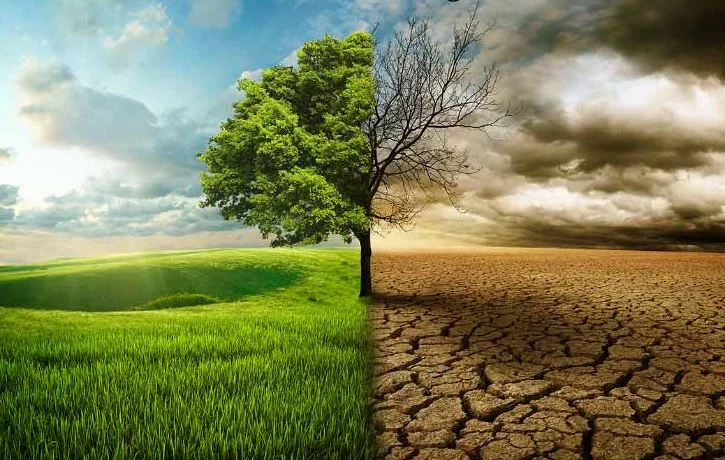I recently became a vegetarian. I say this not to brag because it's not a big deal. But I think it's worthwhile to discuss why I made the shift. The decision was very much connected to climate change.
Why Isn't Everyone Terrified of Climate Change?
Despite the many dire warnings that climate change is here and is going to have disastrous consequences for this planet, I found a lack of urgency about it among political leaders but also among most everyday people. Some of it is because people are in denial that climate change is even real. Some of it is because the true causes of climate change are so ingrained in our culture, that reversing it would require wholesale changes in the way we live.
But I think biggest reason of all is that most of us feel a lack of powerlessness around our politics. To put it simply: What are we supposed to do? We are a socially powerless and disengaged people who live to consume. This powerlessness is one of the byproducts of modernism and a neoliberal economy. All of us disconnected in some respect and check out because we have no idea how to act or meaningfully help the world.
Not Eating Meat is Very Good for Stopping Climate Change
Back to my conversion to vegetarianism. I had heard meat, particularly beef, was one of the worst offenders of greenhouse gases. I didn't know much about it, however. But that changed as I started to read more about the subject in recent months, and soon I discovered that eating less meat is one of the few tangible ways we can keep climate change at bay.
A recent Atlantic article made it all the more explicit,
"Recently Harwatt and a team of scientists from Oregon State University, Bard College, and Loma Linda University calculated just what would happen if every American made one dietary change: substituting beans for beef. They found that if everyone were willing and able to do that—hypothetically—the U.S. could still come close to meeting its 2020 greenhouse-gas emission goals, pledged by President Barack Obama in 2009.
That is, even if nothing about our energy infrastructure or transportation system changed—and even if people kept eating chicken and pork and eggs and cheese—this one dietary change could achieve somewhere between 46 and 74 percent of the reductions needed to meet the target.
“I think there’s genuinely a lack of awareness about how much impact this sort of change can have,” Harwatt told me. There have been analyses in the past about the environmental impacts of veganism and vegetarianism, but this study is novel for the idea that a person’s dedication to the cause doesn’t have to be complete in order to matter. A relatively small, single-food substitution could be the most powerful change a person makes in terms of their lifetime environmental impact—more so than downsizing one’s car, or being vigilant about turning off light bulbs, and certainly more than quitting showering.
What's surprising about the above passage is that a person doesn't even have to go full vegan to help reverse climate change. They just have to stop eating beef.
My Conversion
After reading all this information, I decided to give vegetarianism a shot. (I haven't gone full vegan yet because I still enjoy eggs too much. I'm working on it.) I prepared myself for a painstaking process...
It turns out it was a lot easier than I expected. I bought myself a few vegetarian cookbooks. (They are below if you want to check them out). I learned how to season and cook vegetables in new ways and discovered that vegetarian cooking can be very tasty. But the biggest thing is that I find myself with a lot more energy and verve.
Admittedly I'm telling you all this to proselytize. But I don't do this as some sort of taskmaster trying to make you feel guilty. But here is the truth: the world is getting warmer by the second with disastrous consequences for all of us. Are we, as a species and you as an individual, doing enough to stop it?



